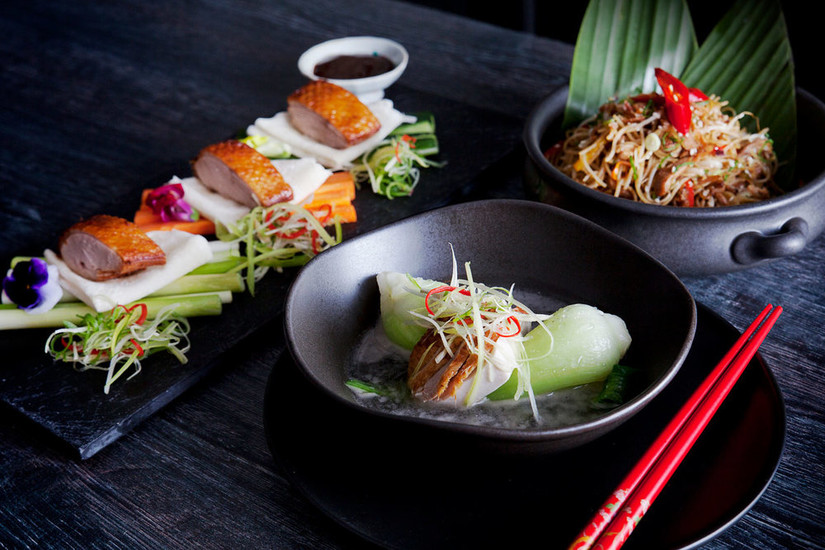
Each talisman withers from each revival, teasing how true harmony with the elements means the player must grow in the end by sparing the bosses and earning the elemental symbol. Each category is more advanced and costs more XP, showcasing the player's necessary growth to reach the final boss. The number five also plays a major role in that each boss can be linked to the five talismans the player has. They operate in harmony and complement one another, much like how the five operate so efficiently as a team. This can be seen in how the student operates in their downtime through their meditative moments and paying respects to their master.Įach of the five bosses the student faces represents the five elements according to Chinese tradition: wood, fire, water, metal and earth. However, closer inspection reveals the game is actually a careful study of the teachings and understandings of Kung Fu and Chinese culture. Through the excellent coaching of these and others, he gradually developed consummate skills in many traditional and modern Chinese Martial Arts weapons and. Chinese Discuss this sifu English translation with the community: 0 Comments Notify me of new comments via email.
Sifu in chinese how to#
For example, you can call the teacher who teaches you to make perfect ramen a 'sifu. How to say sifu in Chinese sifu Would you like to know how to translate sifu to Chinese This page provides all possible translations of the word sifu in the Chinese language. On the other hand, a religious personality, and by extension, experts of Chinese martial arts, can be addressed as "master-father" (師父/师父) or as (師傅/师傅) in all contexts.On the surface, Sifu looks like a simple homage to Chinese martial arts, and the tropes that helped make that genre successful on film. To begin with, many of you might wonder the right way to say the word 'sifu.' It is pronounced as 'sea fool' rather than 'sign fool.' By the way, 'sifu' means master in Chinese/Cantonese, especially in the martial art field and some craftsmanship field.

In the preceding example, the mechanic's apprentice would address his or her master using this term, but a customer would not. In addressing a tradesperson, it would therefore be used only to address the speaker's own teacher or master. Sifu is a game that relies heavily on Chinese culture. The latter term (師父/师父) bears the dual meaning of "master" and "father", and thus connotes a linearity in a teacher-student relationship.

It is used as a title for and role of a skillful. Thus, a customer may use this term to address an automotive mechanic, for example. Sifu is the Cantonese spelling of shfu (Mandarin Chinese) that has different meaning depending on the context.
Sifu in chinese drivers#
The former term (師傅/师傅) bears only the meaning of "master", is used to express the speaker's general respect for the addressee's skills and experience, and is likewise the term frequently used for cab drivers or other skilled laborers. Though pronounced identically and bearing similar meanings, the two terms are distinct and usage is different. In Chinese culture, the term ' shifu ' is used as a respectful form of address for people of working class engaged in skilled trades, such as drivers, cooks, house decorators, sometimes for performing artists, and less commonly, also for visual artists such as painters and calligraphers. 傅 and 父 are both pronounced "fu" with the same tones in Cantonese and Mandarin.Ī similar term often used in Chinese is 老師/老师 (Cantonese Chinese pronunciation: lou5 si1 Mandarin Chinese pronunciation: lǎoshī), meaning "teacher" or literally "old person of skill". ShaoLin Center is different from other martial arts schools, particularly in the depth and breadth of knowledge that SiFu Kleppe has diligently sought. The character 師/师 means "skilled person" or "teacher", while the meaning of 傅 is "tutor" and the meaning of 父 is "father".


The Sifu also teaches his student to respect others and to be. The Sifu has mastered a kung fu style and passes down his skills and knowledge not only of the art form, but also cultural etiquette to his students. In modern times, the word 'Sifu' is synonymous with the title of a kung fu master. Shifu (simplified Chinese: 师傅 or 师父 traditional Chinese: 師傅 or 師父), or sifu in Cantonese (sư phụ in Vietnamese) is a title for and role of a skillful person or a master. The first lesson to learn when embarking on your kung fu journey is the meaning of Sifu (). Wikipedia (4.00 / 1 vote) Rate this definition: Even though the two words (Sifu/Si-Fu) are basically spelled the same in English and sound exactly the same when spoken, one is a generic term for someone of great skill and experience, a master of their craft or a teacher (sifu - ), while the other (Si-Fu - ) is a familial term that carries the double meaning of 'master' and.


 0 kommentar(er)
0 kommentar(er)
